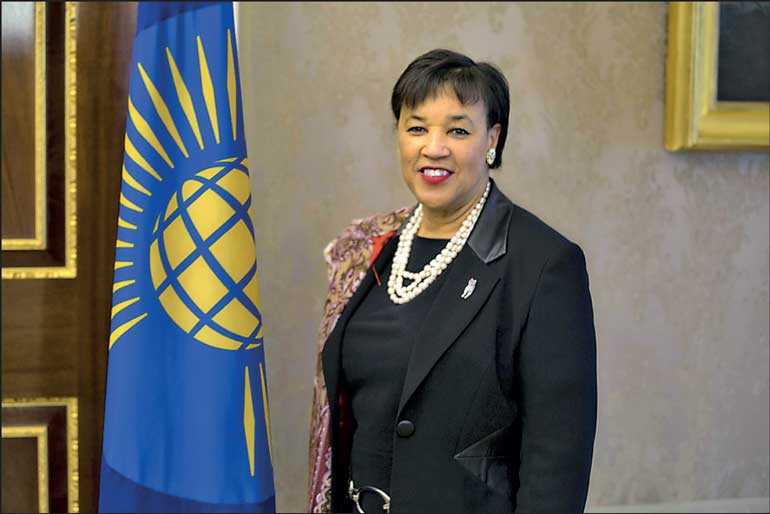Tuesday Feb 17, 2026
Tuesday Feb 17, 2026
Wednesday, 6 March 2019 00:00 - - {{hitsCtrl.values.hits}}

Secretary-General Patricia Scotland has reaffirmed the Commonwealth’s collective commitment to an inclusive, fair and open rules-based multilateral trading system which drives growth, productivity, innovation and employability.
She was speaking at the 2019 Asia Trade Summit in Hong Kong on the importance of the Asia region in the Commonwealth’s mandate to promote and create inclusive prosperity. The summit brought together trade negotiators, business leaders, ministers, academics and economists for the advancement of global trade.
Opening a panel discussion on Global Business in an Anti-Global World, the Secretary-General said: “During the 2018 Commonwealth Heads of Government Meeting (CHOGM), heads raised concerns about the risks of protectionism to the global economy and underlined the importance of resisting all forms of protectionism.”
In response, they adopted the Connectivity Agenda for Trade and Investment to leverage the expertise of member countries to increase intra-Commonwealth trade to $ 2 trillion by 2030. The Agenda will also foster greater cooperation between Commonwealth countries by learning from Asia’s vast experience in bilateral and multilateral trade.
Proposals presented for consideration at the panel discussion are as follows.
She argued that multinationals must ‘sing in chorus’ to make their voices heard and help ensure protectionism does not prevail. “They (multinationals) must continue to engage with governments to press for free and open trade which supports inclusive economic growth and prosperity,” she added.
Focusing on the need for inclusivity, Secretary-General Scotland described investing in human capital as key to economic growth, remarkably in this age of digitisation. She said this investment helps ensure the benefits of economic boom are distributed more equally.
She continued: “The quality and quantity of education have powerful effects on the distribution of income and on economic growth for everyone. A lack of investment in human capital leads to productivity losses in future which constrains the growth and economic transformation of a country.”
The Secretary-General also called for greater integration of small states in the global trading landscape. She said: “With 31 of the 39 world’s small states in the Commonwealth, we offer support to strengthen their fuller integration and beneficial participation into the international trading system so every member state can realise their development goals.”
Speaking as a member of the panel, Fung Group Chairman Victor Fung said: “A balanced multilateral trading system will work closely towards developing inclusive and sustainable growth which will play a critical role in enabling developing countries to eradicate poverty.”
During her first visit to Hong Kong, the Secretary-General has also met with Malaysia International Trade and Industry Deputy Minister Dr. Ong Kian Ming along with other development partners and senior officials.
Last month, the Government of Malaysia hosted a special session on inclusive trade which marked the launch of the working groups of the Connectivity Agenda. The Deputy Minister welcomed the Agenda and confirmed his country’s continued support for the Commonwealth.
He said: “The Commonwealth’s work on the Connectivity Agenda is a good starting point to make trade more real and beneficial for an ordinary person.”
The observations from the summit will help inform the 2019 Commonwealth Trade Ministers Meeting, which resumes after the 2005 meeting in Hong Kong.